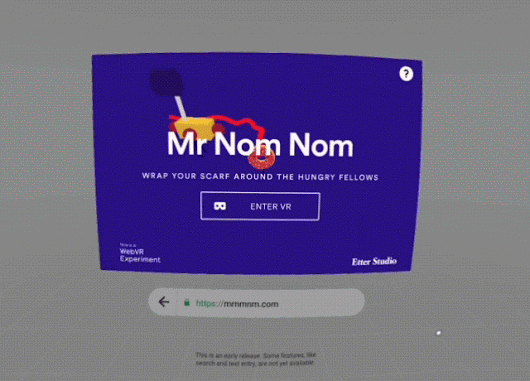 EMERGING TECH
EMERGING TECH
 EMERGING TECH
EMERGING TECH
 EMERGING TECH
EMERGING TECH
With its most recent release, Google Inc.’s flagship browser Chrome on Android will now allow users who have the Google Daydream virtual reality headset to experience the entire web in three dimensions.
The release of Chrome 61, updated on Friday, includes the WebVR platform that can now conveniently bring the web to life in full-blown immersive 3-D VR directly from the mobile browser.
Chrome development team member and “happiness evangelist” François Beaufort announced that the first set of capabilities are now available to test. Users need only launch a website on an Android phone with Chrome installed and updated, slide it into the Daydream VR headset and they have an instant virtual reality web.
“The first set of features is available to try out in Chrome 61,” said Beaufort. “So far this allows users to view and interact with any website in VR, follow links between pages, and move between 2-D and immersive viewing for sites that support WebVR.”
WebVR is a lightweight virtual reality platform designed for use on web pages to allow developers to enable and launch 3-D and 360-degree experiences directly from the web. It includes an application programming interface that allows any website to become a portal for immersive VR audio and visual experiences. With WebVR enabled on any browser, it can allow any web page to become a VR experience from the phone itself, as a “window” into VR, via a headset – with a mobile device or desktop connected.
Of course, some web pages will not be entirely suitable for viewing in VR, but those sporting 360-degree videos or games designed to take advantage of 3-D spaces will instantly spring to life. While it is possible to experience and read text-heavy web pages – news sites similar to this one, for example – they will still render as pages sitting in a “screen” in space.
This addition of WebVR to Chrome will make it even easier for customers to simply jump right in to 360-degree video applications. It gets rid of some of the lack of ease-of-use when attempting to launch VR applications and use VR headsets such as the Google Daydream.
For example, it will now be as simple as loading up a web page from an advertiser – such as these 360-degree videos uploaded by car manufacturer Ford Motor Company – and putting on the headset. Other examples of things to explore include a virtual tour of San Francisco, Google’s own WebVR experiments and many 360-degree videos available on Within Unlimited Inc.’s website.
Google’s intent to turn Chrome into a VR-everywhere application has been evident since the company first announced its intentions at Google I/O 2017. The company announced WebVR support for Chrome in February and began to push out the hooks and software changes necessary to make that happen. This test is the beginning of that effort.
Chrome is not the only web browser to build in VR support this year. Mozilla Corp. also began efforts to bake in VR support for its Firefox browser in August also using WebVR. Apple Inc. joined the WebVR Community Group, a developer community of the World Wide Web Consortium web standards body, in July with an eye to similar developments for iOS products and most likely the company’s own Safari web browser.
“This is just the beginning for web browsing in VR so stay tuned, there’s more to come!” said Beaufort.
The release of Chrome 61 contains all of the scaffolding necessarily for developers to instantly create VR web experiences at a bare minimum. Developers interested in building for WebVR and Chrome can visit Google’s developer portal.
THANK YOU